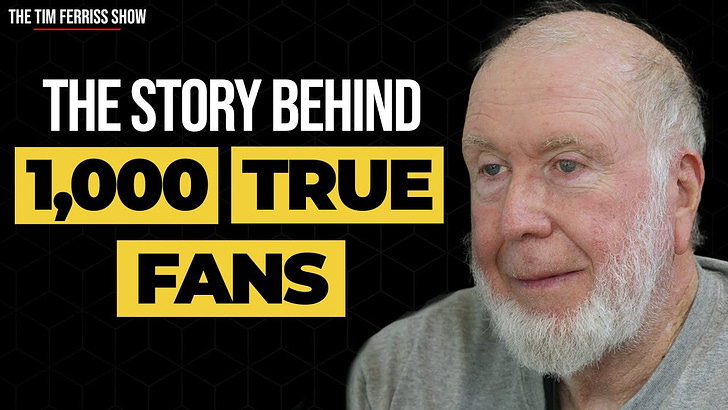#83 - Notes on 1000 Fans, Mindfulness and Masculinity
Education Coffee is a Newsletter on People, Ideas and Culture.
In each edition of this newsletter, I will share some inspiring web resources that I have curated after hours of research to ensure that you have the best education coffee in your inbox. In upcoming editions, I will focus on sharing insights, notes and realizations that I gather from people, ideas, books, films and podcasts. This month I have taken up a #30DaySubstackChallenge. I want to challenge myself to write a newsletter everyday for the next thirty days. I have really enjoyed writing this newsletter and this is a way for me to build my skill set as a newsletter writer. I will go back to writing a 2xWeekly Newsletter in January 2025.
1. Learning from People
I have always been intrigued by the benefits of meditation and mindfulness. Richard Davidson is researching how mindfulness changes the emotional life of our brains and what we know about people's brains of individuals showing more resilience than others. Davidson is Wiliam James and Vilas professor of psychology and psychiatry at the University of Wisconsin-Madison as well as founder and director of the Center for Healthy Minds.
His research is focused on the neural bases of emotion and emotional style and methods to promote human flourishing, including meditation and related contemplative practices. In this TED Talk, he discusses how mindfulness can improve well-being and outlines strategies to boost four components of a healthy mind: awareness, connection, insight, and purpose. He suggests connection, compassion and insight of our narratives to become more mindful on a day to day basis.
2. Learning from Ideas and Questions
A Mental Model is an internal representation of external reality: that is, a way of representing reality within one's mind. The ‘1,000 true fans’ concept is a mental model that suggests that creators can have successful careers by cultivating a loyal base of 1,000 true fans. It was first introduced by Kevin Kelly in this blog post on The Technium. He commented that
To be a successful creator you don’t need millions. You don’t need millions of dollars or millions of customers, millions of clients or millions of fans. To make a living as a craftsperson, photographer, musician, designer, author, animator, app maker, entrepreneur, or inventor you need only thousands of true fans.
A true fan is defined as a fan that will buy anything you produce. These diehard fans will drive 200 miles to see you sing; they will buy the hardback and paperback and audible versions of your book; they will purchase your next figurine sight unseen; they will pay for the “best-of” DVD version of your free youtube channel; they will come to your chef’s table once a month. If you have roughly a thousand of true fans like this (also known as super fans), you can make a living — if you are content to make a living but not a fortune.
It is a powerful concept for a business or individual to understand if you are on the quest to achieve financial freedom as a creator. He shares the story behind it in this short clip from the Tim Ferris show.
3. Learning from Books, Websites and Blogs
missbookthief.com is a digital Indian Literary Publication with 2.5 million readers. Asha Sheth shares reviews in both Hindi and English and also reads a variety of genres. You can find all her reviews at this link on her website.
4. Learning from Films, Videos and Shows
In this episode of AD Talk, I share my thoughts on this innovative advertisement from the about the sandwich QSR company, Subway. #ADTalk is a Youtube series where I share my reaction to popular Indian advertisements In each episode of this series I will share my reaction by talking about the 3 S's which are:
Story being told (connection to a human story or need)
Service being provided (product or service details)
Strategy adopted (audio, video, branding, setting)
5. Learning from Podcasts and Music
Nikhil Taneja hosts the ‘Be a Man Yaar’ podcast and founded Yuvaa Foundation. In this episode he talks about his childhood, youth, the conditioning he received as a man and how he managed to break free from the toxic shackles of masculine tropes and stereotypes.
Thank you for reading this edition of #EducationCoffee. I look forward to writing weekly editions of this newsletter this year. I hope to continue to share resources that will add value to your life. You can also review the archive of Education Coffee for free at this link (82 past newsletters).
Please do send me your thoughts and resources on any edition of this newsletter through email at abhishekashokshetty@gmail.com, Linkedin or Twitter @AbhishekShetty_. You can find my work online at this website. If you would like to read pieces in the future please do consider subscribing to this newsletter by clicking the button below. I love taking these discussions forward on those platforms and look forward to hearing your feedback.
Abhishek Shetty




